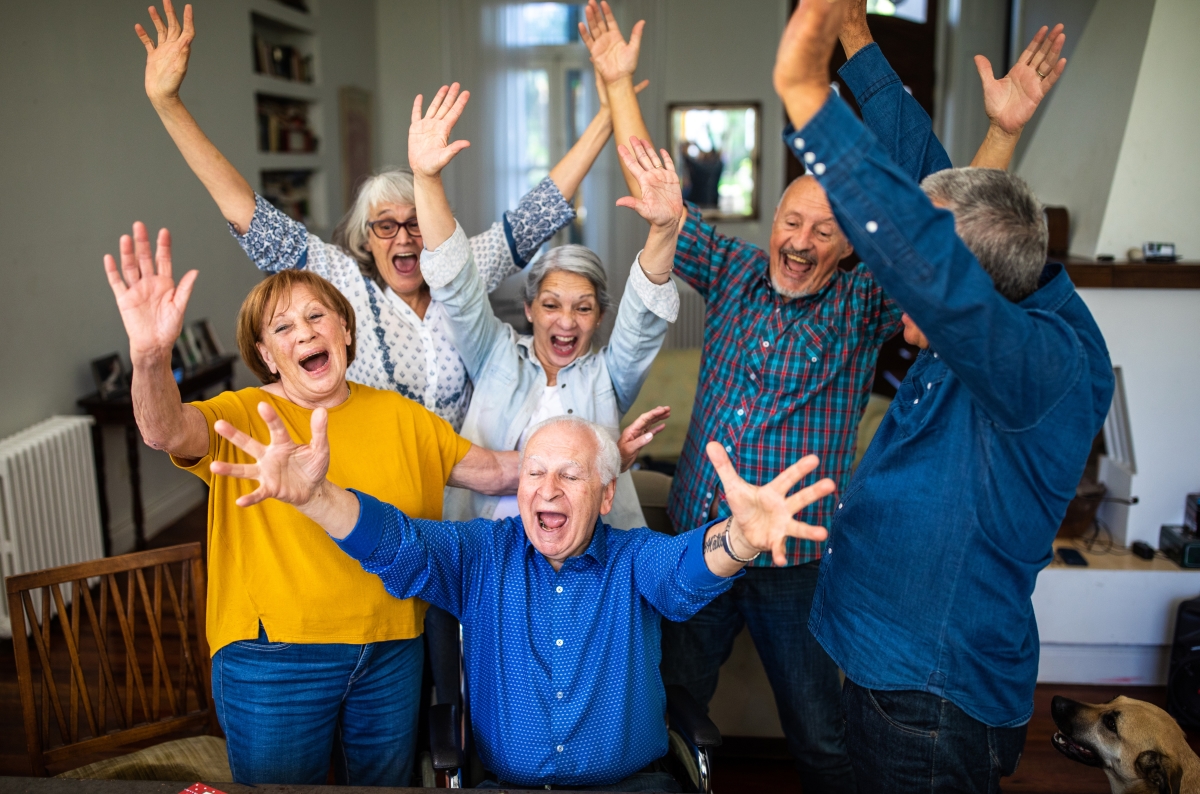
Imagine listening to your favorite song and feeling the flood of emotions, memories, or energy it brings. Music has an incredible way of touching our hearts, stirring memories, and affecting our physical well-being. For seniors, the power of music goes beyond entertainment—it can enhance mood, trigger forgotten memories, and improve overall mental and emotional health.
The Science Behind Music and the Brain
Music profoundly affects the brain, which is why it’s such a powerful tool for seniors. Neurological studies show that music activates several areas of the brain simultaneously. Listening to music can light up regions associated with memory, emotions, and even motor skills. This unique connection is why a simple melody can help someone recall moments from decades ago.
For seniors, music can bridge memories that may have faded due to aging or cognitive decline. For instance, individuals with Alzheimer’s or other forms of dementia often respond positively to familiar music. Even if their short-term memory is impaired, they can still remember song lyrics from their youth. This is because music is stored in long-term memory and processed in brain areas less affected by Alzheimer’s disease.
Boosting Mood and Combating Loneliness
As people age, it’s common to experience loneliness or isolation, especially for those living alone or in care facilities. Music can act as a natural mood booster, helping to alleviate these feelings. Whether it’s an upbeat rhythm that gets someone tapping their foot or a calming tune that reduces anxiety, the emotional impact of music is undeniable.
Studies have shown that listening to music can release dopamine, a chemical in the brain that creates feelings of happiness and pleasure. For seniors dealing with stress, depression, or anxiety, this can be a simple and effective way to improve mood. Group music activities, such as sing-alongs or music therapy sessions, can also create a sense of community, helping seniors feel more connected with others.
Music and Memory: A Powerful Connection

Memory is one of the areas where music has the most significant impact on seniors. As mentioned earlier, music can help retrieve memories that seem lost. This is especially beneficial for those with memory-related conditions, but even seniors without cognitive impairments can benefit from music’s memory-enhancing effects.
Music can act as a cue for memory recall. For instance, hearing a song from a specific era can bring back vivid recollections. It might remind someone of a particular event, like their high school prom, a family gathering, or a vacation. This kind of memory recall can be enriching and provide a sense of continuity, especially as seniors reflect on their lives.
Research suggests that musical engagement, whether through listening or playing an instrument, can also enhance cognitive function. This could mean sharper thinking skills, better focus, and improved problem-solving abilities for seniors. It’s never too late to pick up a new musical hobby, and for many seniors, learning to play an instrument provides cognitive stimulation and a rewarding sense of accomplishment.
Music Therapy for Seniors
Music therapy is an evidence-based approach that uses music to address various physical, emotional, cognitive, and social needs. This therapeutic practice is particularly beneficial for seniors because it can be tailored to individual needs, whether it’s managing pain, reducing agitation, or encouraging movement in those with mobility challenges.
Certified music therapists work with seniors to design personalized programs that can include listening to music, singing, playing instruments, or even composing songs. These sessions are not only enjoyable but can lead to measurable improvements in well-being. For example, music therapy has been shown to reduce the need for medication in seniors with chronic pain, improve communication skills in those with speech difficulties, and enhance emotional expression.
For seniors with dementia, music therapy can reduce symptoms of agitation and restlessness while improving communication and engagement. Even those in advanced stages of dementia may respond to music, singing along or moving in time with the rhythm. This can create moments of joy and connection for the seniors, their caregivers, and their loved ones.
The Social Benefits of Music

Beyond its emotional and cognitive benefits, music also provides important social advantages for seniors. Group music activities, such as choirs, drumming circles, or dance classes, offer seniors the opportunity to engage with others in a shared, enjoyable experience. These activities foster social connections, helping to reduce feelings of isolation and loneliness.
Participating in group music-making can also strengthen self-esteem and a sense of purpose. Many seniors find that being part of a choir or other musical group gives them something to look forward to and a sense of belonging. Even if someone has never played an instrument or sung in a group, it’s never too late to start. Music has a way of bringing people together, regardless of skill level.
Family members and caregivers can join these musical activities, creating bonding opportunities. A sing-along with grandchildren, for example, can be a memorable and enjoyable experience for everyone involved. Music bridges generational gaps and creates shared experiences, fostering a stronger sense of family and community.
How to Incorporate Music into Daily Life

Incorporating music into daily life is a simple and effective way for seniors to enjoy its many benefits. Here are a few ideas on how seniors can make music a regular part of their routine:
- Start the day with music: Create a morning playlist of uplifting and energizing songs to help set a positive tone.
- Sing along: Singing is a great way to engage with music and doesn’t require any special equipment. Whether singing along to a favorite album or joining a virtual choir, singing can lift spirits and improve lung health.
- Attend concerts or music events: Many communities offer free or low-cost concerts, which can be a fun way to enjoy live music. Virtual concerts are also an option for those with limited mobility.
- Try music therapy: If you have specific therapeutic goals, such as improving mobility or reducing anxiety, working with a certified music therapist can provide a more structured approach to using music for healing.
- Create a musical memory book: Compile a list of songs with special meaning, and listen to and reflect on the memories they evoke. This can be a wonderful way to reminisce and engage with personal history.
Conclusion: Music as a Lifelong Companion

The beauty of music lies in its ability to connect with people at every stage of life. For seniors, the impact of music on mood, memory, and overall well-being cannot be overstated. Whether through listening, singing, or playing an instrument, music offers countless opportunities for joy, connection, and emotional healing.
Incorporating music into everyday life can transform not only how seniors feel but also how they engage with the world around them. It’s a powerful reminder that music remains a constant companion no matter our age—lifting spirits, stirring memories, and enriching our lives in ways that words alone cannot express. So, why not turn up the volume and let the music play?





